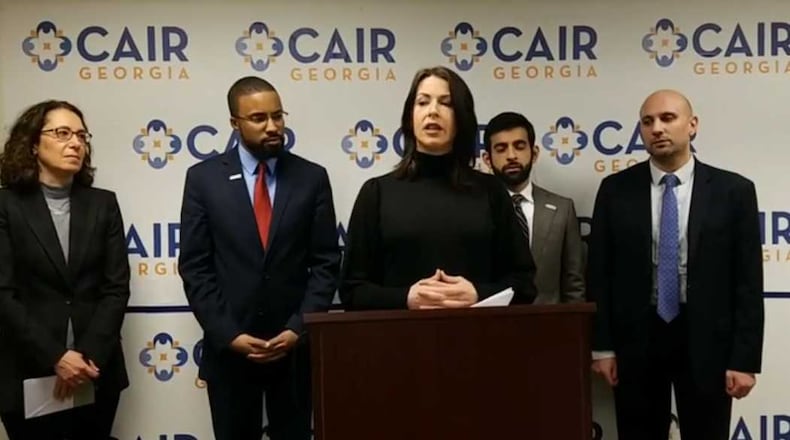A federal court ruled against a plaintiff challenging a state law that requires significant state contracts to include a pledge to not boycott Israel.
The 11th U.S. Circuit Court of Appeals ruled last week in favor of the Georgia Board of Regents, which governs the University System of Georgia, for not moving forward with a contract for Abby Martin to speak at an academic conference after she refused to sign the pledge.
Martin — who supports the boycott, divestment and sanctions movement, or BDS, that seeks to economically protest Israeli policy toward the Palestinians — believed the requirement was a violation of her free speech. However, the court ultimately ruled that she failed to prove there was any constitutional violation and therefore ruled with the regents due to qualified immunity, which protects public employees from being sued for doing their jobs for the state.
Georgia’s anti-BDS law was originally passed in 2016, but after Martin sued, it was struck down in 2021 by a federal judge who found it was unconstitutionally compelled speech.
In 2022, the law was altered to raise the threshold for the anti-boycott pledge to state contracts worth more than $100,000 and only apply to companies with five or more employees. Martin sued again because the judge in the original case found the regents’ employees were protected from legal action.
“I was pleased to see the unanimous ruling,” Marietta Republican state Rep. John Carson, the lead sponsor behind the 2022 law, said in a statement Thursday. “With this decision, multiple circuits have now highlighted the fact that discriminatory commercial conduct is distinct from constitutionally-protected free speech.”
But Mark Stern, chief legal officer at the American Jewish Committee, a group that opposes the BDS movement, said the court didn’t make a broad determination of whether anti-BDS laws are constitutional.
“While it leaves the statute intact, and that’s good news, there’s no actual holding that the statute is constitutional,” he said. “Anything more than that is putting words in the court’s mouth.”
Nevertheless, Justin Sadowsky, a trial attorney for the Council on American-Islamic Relations Legal Defense Fund who represented Martin, expressed disappointment with the court’s decision. He wouldn’t comment on whether there are plans to appeal the case.
Sadowsky said the council will continue to support those affected by anti-BDS laws. He also said the fact that laws are being altered while lawsuits are ongoing makes him doubtful backers are confident in their legal argument.
“This is one of many cases in which governments who have anti-BDS laws have modified those laws to exclude people who bring lawsuits, showing that even they believe these laws are constitutionally problematic,” he said. Georgia’s altered law now excludes individuals, such as Martin, from this requirement.
StandWithUs, an international organization that promotes education about Israel and combats antisemitism, praised the ruling in a statement, believing it makes Georgia a safer place. Reasons for concern for the safety of the state’s Jewish population were on display Saturday, when neo-Nazis demonstrated outside a synagogue in east Cobb County.
“We thank the state of Georgia … for its continued efforts to combat national-origin discrimination,” said Roz Rothstein, co-founder and CEO of the organization, “and ensure that Georgia remains a welcoming environment for all.”
About the Author
Keep Reading
The Latest
Featured



